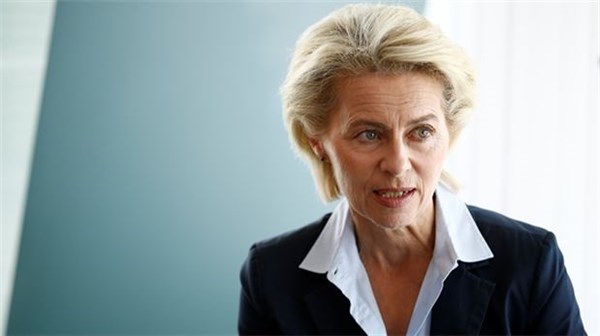European Commission President: hope for completing Nord Stream 2 is fading
The EU's relations with Russia in connection with the construction of the Nord Stream-2 gas pipeline are unlikely to improve in the future. Therefore, the approach to this project should be changed, said the head of the European Commission (EC) Ursula von der Leyen, reports the newspaper Les Echos.
"Russia's behavior has not improved and even tends to worsen. Our hope for further progress with this pipeline is fading," she explained.
Therefore, the attitude towards Nord Stream 2, which used to be based on economic principles, needs to be changed. "I am convinced that this is also a highly political project. Russia is not going to change its attitude because of this infrastructure. Therefore, we must reintegrate this topic into a wider range of relations with Moscow," the head of the EC said.
Von der Leyen worked for several German governments under Chancellor Angela Merkel. In early September, Merkel announced that the Nord Stream 2 gas pipeline would be completed despite threats from U.S. senators. However, after the scandal with the poisoning of Alexei Navalny, Merkel said that the fate of Nord Stream 2 should be decided at the pan-European level.
As the newspaper Die Zeit reported, the Federal Government of Germany offered the U.S. the option of lifting sanctions against the Nord Stream-2 pipeline in exchange for billions of investments in the construction of two LNG terminals.
In response, the U.S. administration urged the German government not to link negotiations on diversification of German energy sources with the fate of Nord Stream-2. As the head of the press service of the U.S. State Department Morgan Ortagus told TASS, "the U.S. opposition to Nord Stream-2 has never been simply about selling more U.S. natural gas to Germany."
According to her, the United States opposes the Nord Stream 2 project because it believes that it would "undermine the energy security and stability of Europe as a whole by providing Russia with another tool of political coercion of European countries, especially Ukraine." "Russia understands that this project is splitting Europe, and it turns it in its favor. This project would prevent European energy diversification," Ortagus said.
She noted that more and more countries opposed the pipeline after the poisoning of Navalny. “Nord Stream-2 is not a commercial project, it is a geopolitical tool that the Russian government will use to exploit and expand European dependence on Russian energy supplies, as well as to promote malicious influence and strategic corruption throughout the region," the US State Department official said. Dmitry Peskov, a spokesman for the Russian president, has previously said that Moscow does not see any risks to the project.
